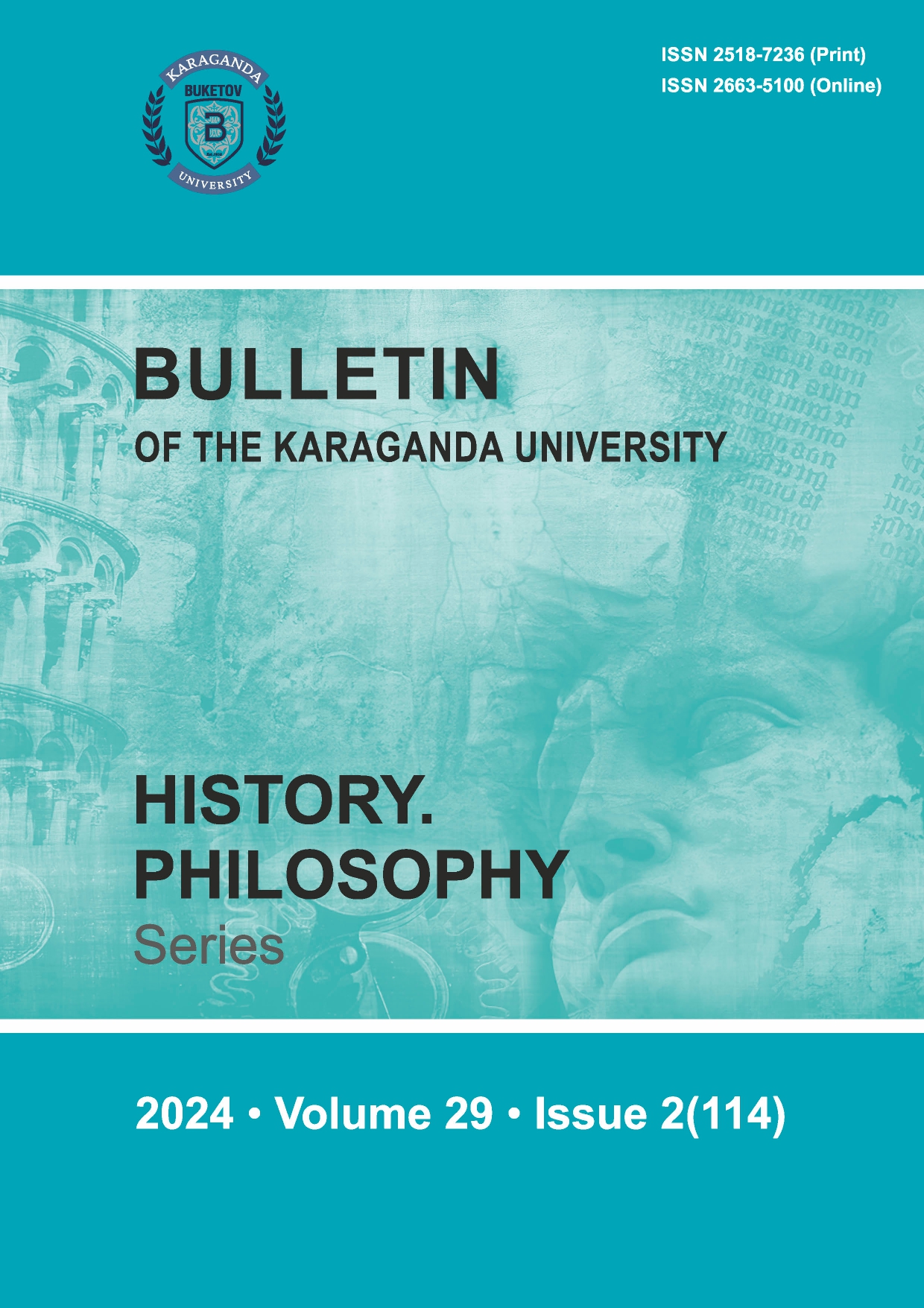Analysis of the history of Moghulistan in textbooks: historical events, personalities and ideological aspects
DOI:
https://doi.org/10.31489/2024hph2/166-173Keywords:
Moghulistan, Ulus Chagatai, Kazakh Khanate, medieval history, textbooks, Mughals, rulers of Moghulistan, medieval researchers, domination of ideology, comparative analysisAbstract
This article presents the results of a comprehensive study aimed at evaluating perceptions of the history of Mogulistan. The research involved analyzing key historical events, important historical figures, and ideological aspects of Mogulistan's history as presented in educational materials. By focusing on the author's logical psychological concept of textbook creation, as proposed by Rahimov A.Z., which states that “a textbook is not just a means of acquiring new knowledge, but a socially significant object telling about a problem capable of capturing the hearts and minds of students”, it can be argued that textbooks are viewed as ideological instruments. Conducting a comparative analysis of secondary education textbooks from the Soviet era to the present day reveals how the dominant ideology has influenced the summarization of historical events and descriptions of individuals. The study also examines which events in Mogulistan's history are reflected in text books and which names are included in their content. The specific nature of this research lies in conducting a comprehensive analysis of the history of the Great Moguls' state in secondary education textbooks, identifying new aspects in textbooks of the new generation, and revising known facts. The research findings conclude on the level of objectivity in portraying Mogulistan's history in textbooks and the enduring influence of ideologies on textbook content throughout history. Addressing the main ideas and conclusions, the article contributes to a deeper understanding of historical processes in Mogulistan's history.




